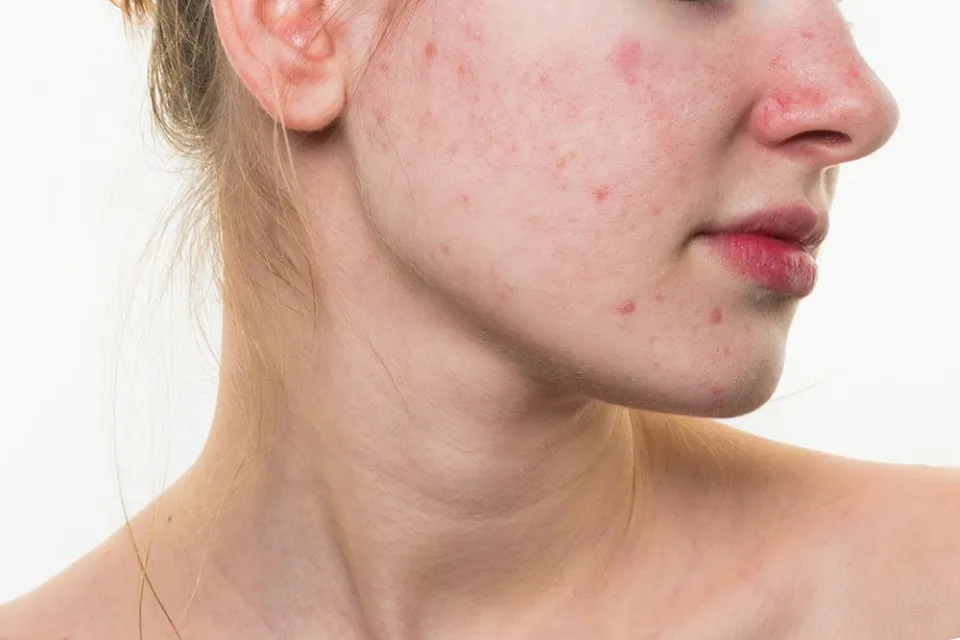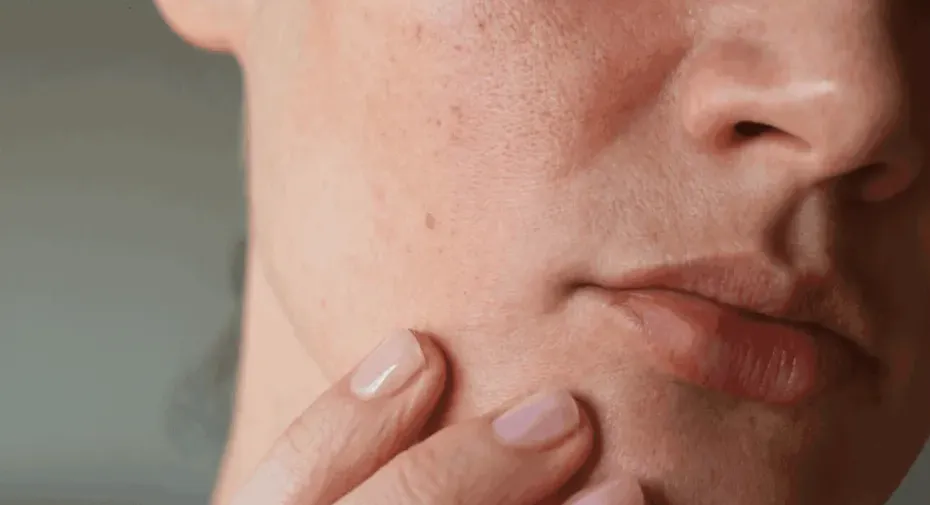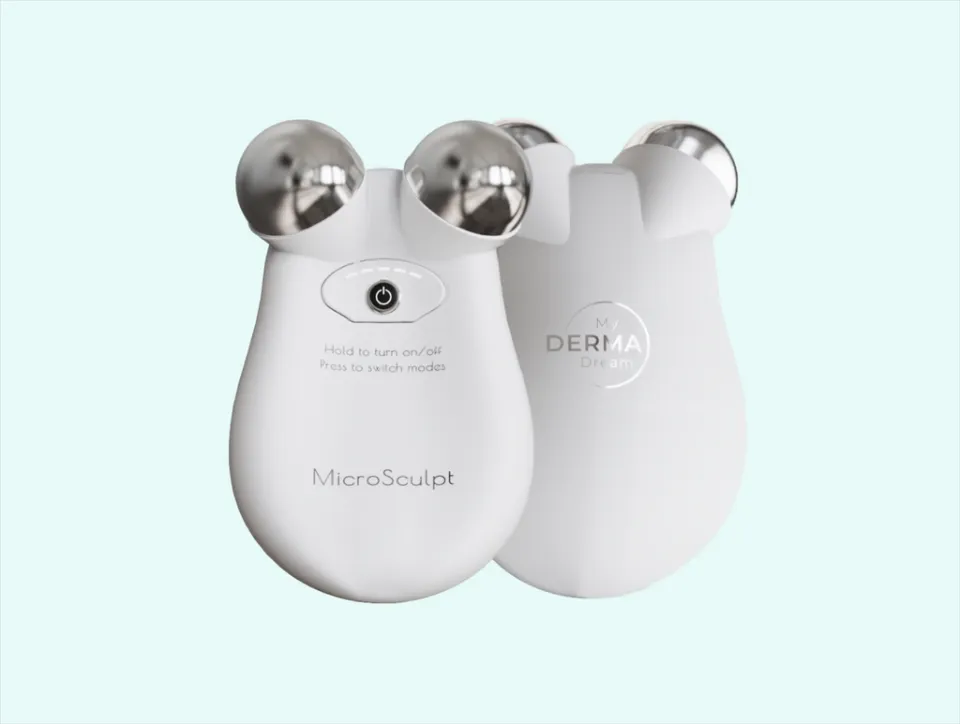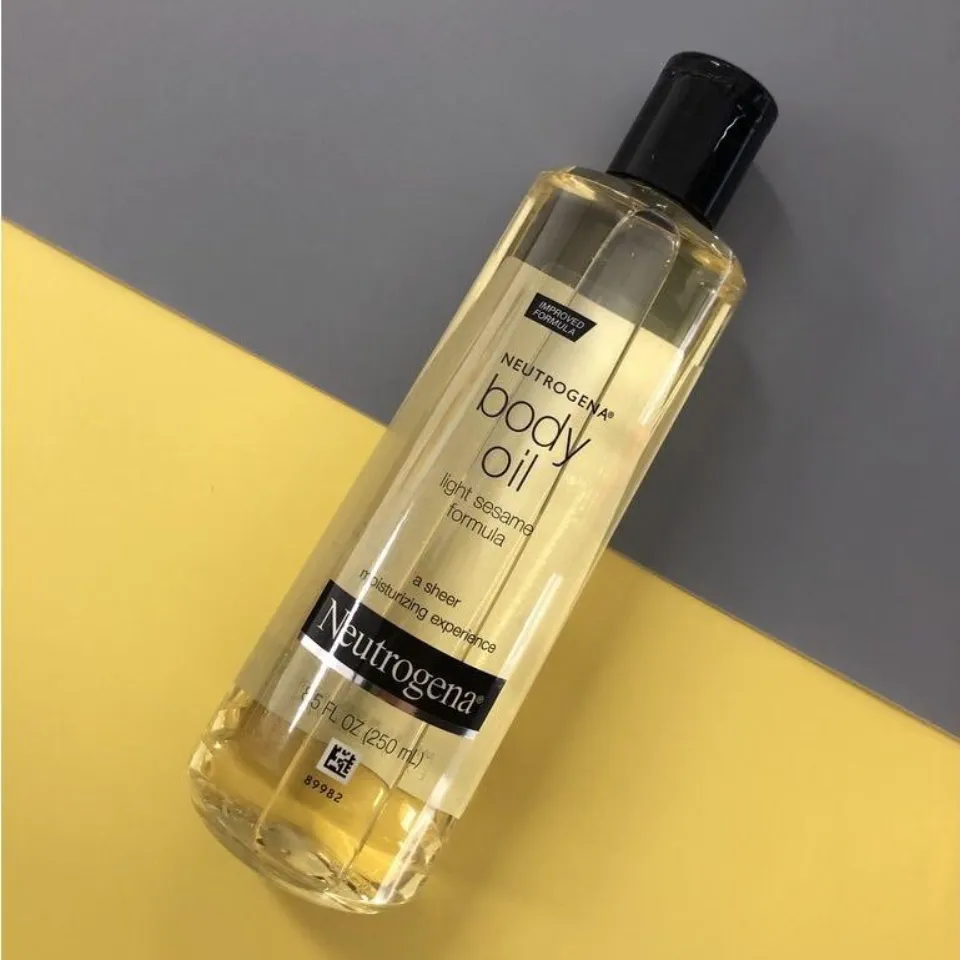It seems like a natural consequence of the winter season that dry skin is so pervasive during that time. Does dry skin cause acne?
You may assume that you can only get acne when your skin is oily, but many people develop dry skin and acne at the same time. In fact, some are even more prone to acne when they have dry skin.
Continue reading to learn about the potential causes, remedies, and prevention advice for acne on dry skin.
Does Dry Skin Cause Acne?
Oily skin and acne are frequently linked. So you may be surprised to know that a combination of acne and dry skin is common too.
Dry skin does not directly cause acne, per se. However, it might worsen the situation.
Some people who have dry skin also have acne. It can be challenging to battle two skin conditions at once.
However, knowing what’s causing your dry skin can help you take action to address the problem.
Read More:
How Can Dry Skin Cause Acne?
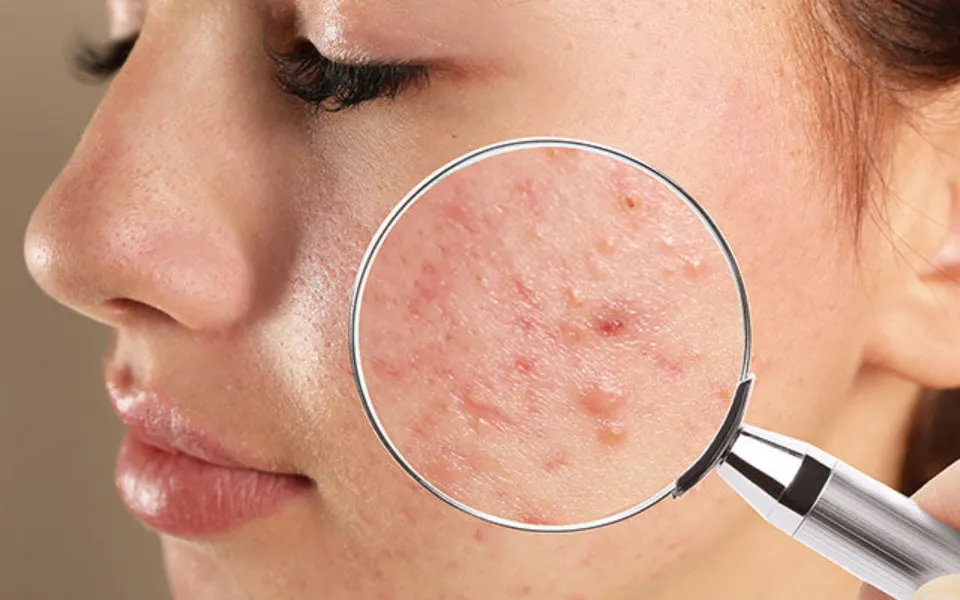
It affects people of all ages and is the most prevalent skin condition worldwide. While it’s usually associated with teenagers, acne can last well into your 30s, 40s, and beyond.
There are three main causes of acne when you have dry skin:
- Hair follicles – Numerous hair follicles on our skin allow for hair growth. The skin develops small bumps that resemble acne when hair follicles are blocked or clogged. Your dermatologist in Asarch can determine whether you have acne or folliculitis, a common skin condition that happens when hair follicles become inflamed or infected.
- Sebum – Tiny glands located close to the skin’s surface produce sebum, a natural oil that keeps skin from drying out. A buildup of sebum from these glands can clog hair follicles and lead to acne.
- Dead skin – Other debris, such as dead skin, may accumulate on your skin when it becomes dry and dehydrated. More sebum is frequently produced by the glands under the skin to combat the dryness. Acne is frequently brought on by too much sebum and dead skin.
Home Remedies for Dry Skin and Acne
Regularly moisturizing your skin can help prevent flare-ups of dry skin, especially after a shower or bath.
Always use the proper moisturizer for your skin type; for the majority of people, a mild, fragrance-free moisturizer is the best choice.
To combat both dry skin and acne breakouts, consider continuing your skincare as usual with a moisturizer that’s targeted for acne-prone skin.
Additionally, stay away from any chemicals, such as rubbing alcohol, as they can further dry out your skin.
The following home remedies for acne are typically added to creams, gels, or masks or applied directly to the skin:
- Tea tree oil – Has anti-inflammatory and antibacterial properties that can reduce the redness and swelling of pimples and kill the bacteria that causes acne
- Jojoba oil – A natural waxy substance that helps repair damaged skin and reduce skin inflammation
- Aloe vera – Contains sugar molecules, amino acids, and zinc, making it an excellent skin moisturizer and protectant (especially if you get dry skin from other acne-fighting products)
- Honey – This sticky food has been used for thousands of years to treat skin conditions and help clear clogged pores
Read More: How to Treat Dry Skin Around Nose?
Tips to Get Rid of Dry Skin Acne
Here are some tips to help you get rid of dry skin acne.
1. Follow a Regular Skincare Routine

Make sure you’re using gentle skin care products. Maintain a skincare routine that is suitable for your skin type. A lot of new product introductions should be avoided as they may have more negative effects than positive ones.
2. Cleanse Twice a Day
Use a soft face wash twice daily to wash your face. Utilize a face wash designed specifically for dry, blemish-prone skin. Another option is a cleanser with a milky texture that won’t dry out the skin’s natural oils.
3. Choose Products Suitable for Your Skin
Select skincare or makeup items with ingredients suited to your skin type. Watch out that they don’t aggravate or drier the skin.
Additionally, search for non-comedogenic products. Remember to wash off your makeup before going to bed.
Always use unscented skin care products because they are usually mild and gentle on the skin.
4. Remember to Moisturize Your Skin
It’s unnerving to moisturize the skin for those with acne-prone skin. However, moisture is necessary for all skin types, especially dry skin.
Choose a moisturizing gel to rehydrate your skin, lessen pimples, and lessen post-inflammatory hyperpigmentation.
5. Sunscreens Are a Must
To shield your skin from UV rays, use sunscreen with at least an SPF of 30. It will aid in avoiding skin dryness, reducing skin inflammation, and lightening any dark spots that endure after acne has cleared up.
When to See a Dermatologist About Dry Skin and Acne?
In the event that over-the-counter medications and at-home treatments fail to clear up your dry skin or treat your acne within 4 to 8 weeks, you should see a dermatologist.
He might recommend treatments like laser, chemical peel, microdermabrasion, dermaplaning, etc. depending on how severe your condition is., when necessary.
The dermatologist will also examine whether patients have skin conditions like dermatitis, psoriasis, etc. are the reason behind your dry skin and acne, and suggest suitable treatments.
Takeaway: Does Dry Skin Cause Acne
If you’re not able to figure out what’s causing your acne, or if you feel like you’ve tried every over-the-counter option and aren’t seeing any results, reach out to a board-certified dermatologist for help.
Your skin will be evaluated, and they’ll develop a plan of action to help your complexion look better.
Read More: What is Sensitive Skin?
FAQs
Does Oily Skin Cause Acne?
Acne breakouts may become more frequent as a result of oily skin clogging pores.
Can Dry Skin Cause More Acne?
Dryness causes the skin to produce more oil, which can clog pores and worsen acne.
Does Hydrating Skin Help Acne?
Studies show that, 4 to 8 weeks after starting to use an acne-friendly moisturizer, the majority of patients experience less acne.

